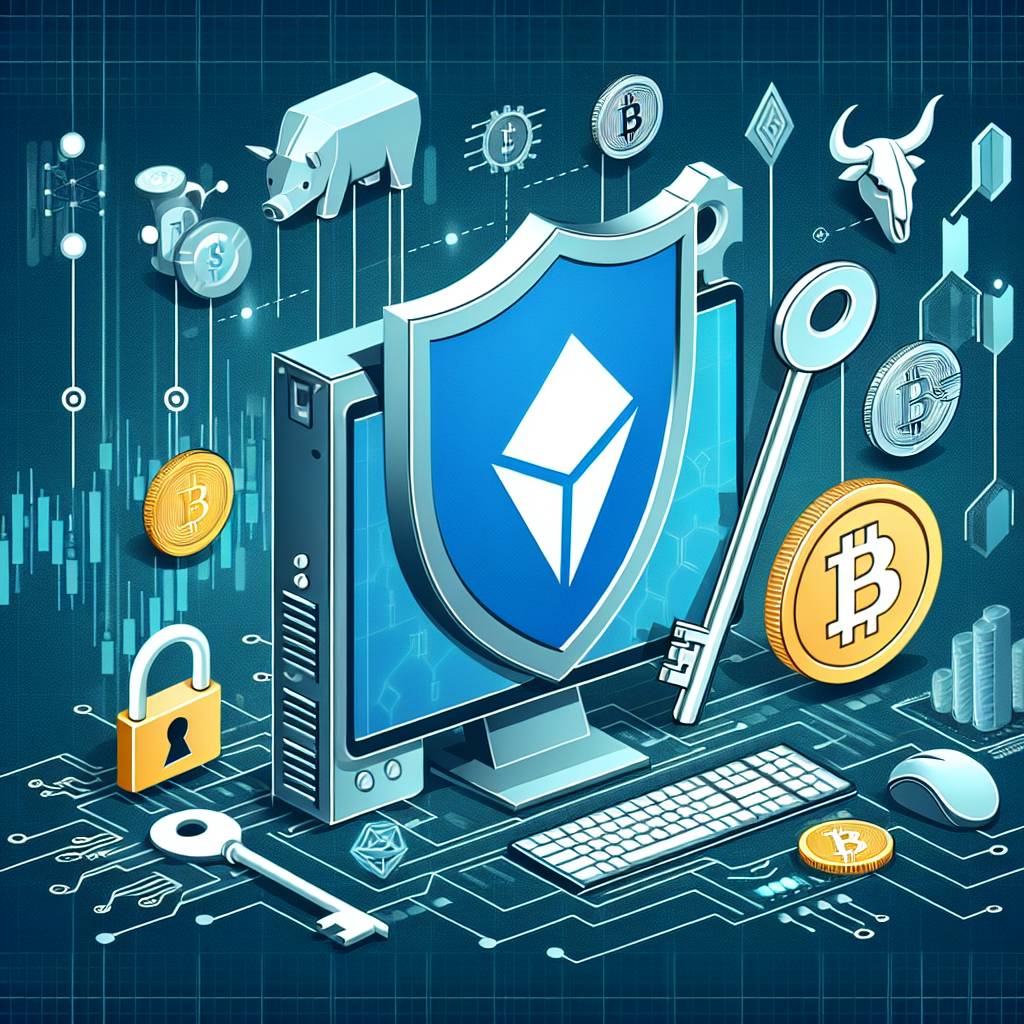How can I protect my private keys and prevent unauthorized access to my digital assets?
What are some effective ways to ensure the security of my private keys and prevent unauthorized access to my digital assets?

3 answers
- One of the most important steps to protect your private keys and prevent unauthorized access to your digital assets is to use a hardware wallet. Hardware wallets are physical devices that store your private keys offline, making it extremely difficult for hackers to gain access. They provide an extra layer of security by keeping your private keys separate from your computer or smartphone, which are more vulnerable to malware and hacking attempts. Additionally, make sure to choose a hardware wallet from a reputable manufacturer and always keep your firmware up to date. Another important measure is to enable two-factor authentication (2FA) on all your cryptocurrency accounts. 2FA adds an extra layer of security by requiring a second form of verification, such as a code generated by an app on your smartphone, in addition to your password. This makes it much more difficult for unauthorized individuals to access your accounts even if they manage to obtain your password. It's also crucial to regularly update your software and operating systems to ensure that you have the latest security patches. Developers often release updates to fix vulnerabilities and improve security, so staying up to date is essential. Additionally, be cautious of phishing attempts and only access your cryptocurrency accounts through secure and trusted websites or applications. Always double-check the URL and make sure it is the official website before entering your login credentials. Lastly, consider using a password manager to generate and store strong, unique passwords for each of your cryptocurrency accounts. This reduces the risk of using weak passwords or reusing passwords across multiple platforms, which can make it easier for hackers to gain unauthorized access to your accounts. Remember, protecting your private keys and digital assets is crucial in the world of cryptocurrencies, so it's worth investing time and effort into implementing these security measures.
 Jan 13, 2022 · 3 years ago
Jan 13, 2022 · 3 years ago - Hey there! Keeping your private keys secure and preventing unauthorized access to your digital assets is super important in the crypto world. Here are a few tips to help you out: 1. Use a hardware wallet: These nifty devices store your private keys offline, making it really tough for hackers to get their hands on them. Plus, they're separate from your computer or phone, which means they're less susceptible to malware and hacking attempts. 2. Enable two-factor authentication (2FA): This adds an extra layer of security by requiring a second form of verification, like a code from your smartphone, along with your password. So even if someone manages to get your password, they won't be able to access your accounts without the second factor. 3. Keep your software up to date: Developers regularly release updates to fix security vulnerabilities, so make sure you're running the latest versions of your software and operating systems. This helps protect against potential attacks. 4. Be wary of phishing attempts: Hackers love to trick people into giving up their login credentials through fake websites or emails. Always double-check the URL and make sure you're on the official website before entering any sensitive information. 5. Use a password manager: It's a good idea to use a password manager to generate and store strong, unique passwords for each of your crypto accounts. This way, you won't have to remember them all, and you'll reduce the risk of using weak passwords or reusing them across different platforms. Hope these tips help you keep your private keys safe and your digital assets secure! Happy crypto-ing!
 Jan 13, 2022 · 3 years ago
Jan 13, 2022 · 3 years ago - At BYDFi, we prioritize the security of our users' digital assets. Here are some best practices to protect your private keys and prevent unauthorized access: 1. Use a hardware wallet: Hardware wallets, such as Ledger or Trezor, provide an offline storage solution for your private keys. This significantly reduces the risk of online attacks and ensures that your keys are kept secure. 2. Enable two-factor authentication (2FA): By enabling 2FA, you add an extra layer of security to your accounts. This typically involves using an app like Google Authenticator or receiving SMS codes to verify your identity when logging in. 3. Keep your software up to date: Regularly updating your software, including your operating system and cryptocurrency wallets, is crucial for maintaining security. Updates often include important security patches that protect against known vulnerabilities. 4. Be cautious of phishing attempts: Phishing is a common tactic used by hackers to trick users into revealing their private keys or login credentials. Always double-check the authenticity of websites and emails before entering any sensitive information. 5. Use strong and unique passwords: Avoid using easily guessable passwords and consider using a password manager to generate and store complex passwords for each of your accounts. Remember, taking proactive measures to protect your private keys is essential for safeguarding your digital assets. Stay vigilant and prioritize security at all times.
 Jan 13, 2022 · 3 years ago
Jan 13, 2022 · 3 years ago
Related Tags
Hot Questions
- 98
What are the tax implications of using cryptocurrency?
- 61
What are the best practices for reporting cryptocurrency on my taxes?
- 50
Are there any special tax rules for crypto investors?
- 45
How can I minimize my tax liability when dealing with cryptocurrencies?
- 41
What are the advantages of using cryptocurrency for online transactions?
- 33
What is the future of blockchain technology?
- 23
What are the best digital currencies to invest in right now?
- 15
How can I protect my digital assets from hackers?
